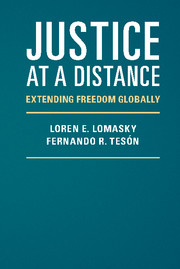2 - What Do We Owe Distant Others?
Published online by Cambridge University Press: 05 November 2015
Summary
Before sitting down to write this chapter, one of the authors fortified himself with a freshly brewed tall latte. The cost was a reasonable $3.75 plus tax – reasonable, that is, relative to prices on the American specialty coffee market. From other perspectives, however, the purchase is an extravagance. Over half the world's population subsists on a daily income of less than the cost of that one coffee. That is not how much they spend on food and drink; it is the amount available to spend on everything. Those who have $3.75 per day are fortunate compared with the world's truly poor. The World Bank has established the global poverty line at the equivalent of $US1.25 per day. The number who are accounted poor by this standard is not trivial; more than 1 billion people live at or under this level. It might be more accurate to say instead that they die under this level. All measures of mortality and morbidity are much worse for the global poor than they are for Western latte drinkers. Life expectancy at birth is dramatically lower. In large measure, this is so because the children of the poor die at distressing rates; almost 10 million children under the age of five perish each year. The vast majority of these deaths are unnecessary; the diseases that produce the carnage are almost entirely treatable in societies that possess modern health-care systems. Hunger, dispossession, infirmity, and death: this is the lot of the world's poor.
Only someone slow or callous could fail to reflect in the light of these data that it would be a wonderful boon to the global underclass if only some small fraction of the plenty enjoyed by the world's upper stratum could be used to relieve their misery. The simplest strategy that might seem to bring about this change is a direct transfer from the well-off to the poor. This could be done by governments taxing their citizens, the proceeds going abroad. Alternatively, generous individuals could of their own free will give to those in need. One way or the other, transfer might present itself as a moral imperative. How many cups of Starbucks' coffee is a young life worth? The question may seem to be obscene.
- Type
- Chapter
- Information
- Justice at a DistanceExtending Freedom Globally, pp. 31 - 58Publisher: Cambridge University PressPrint publication year: 2015



